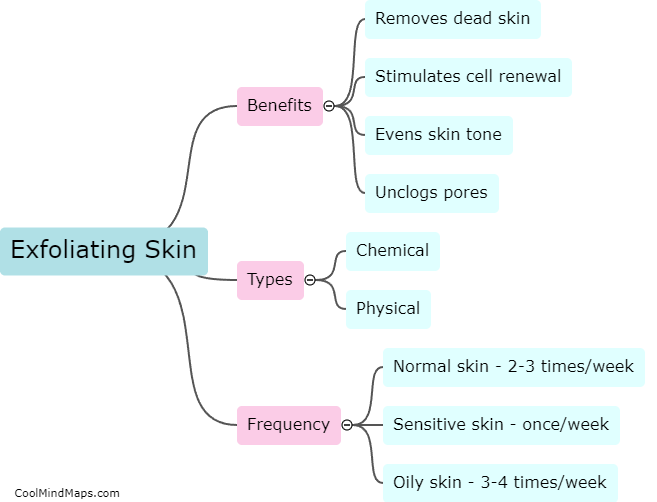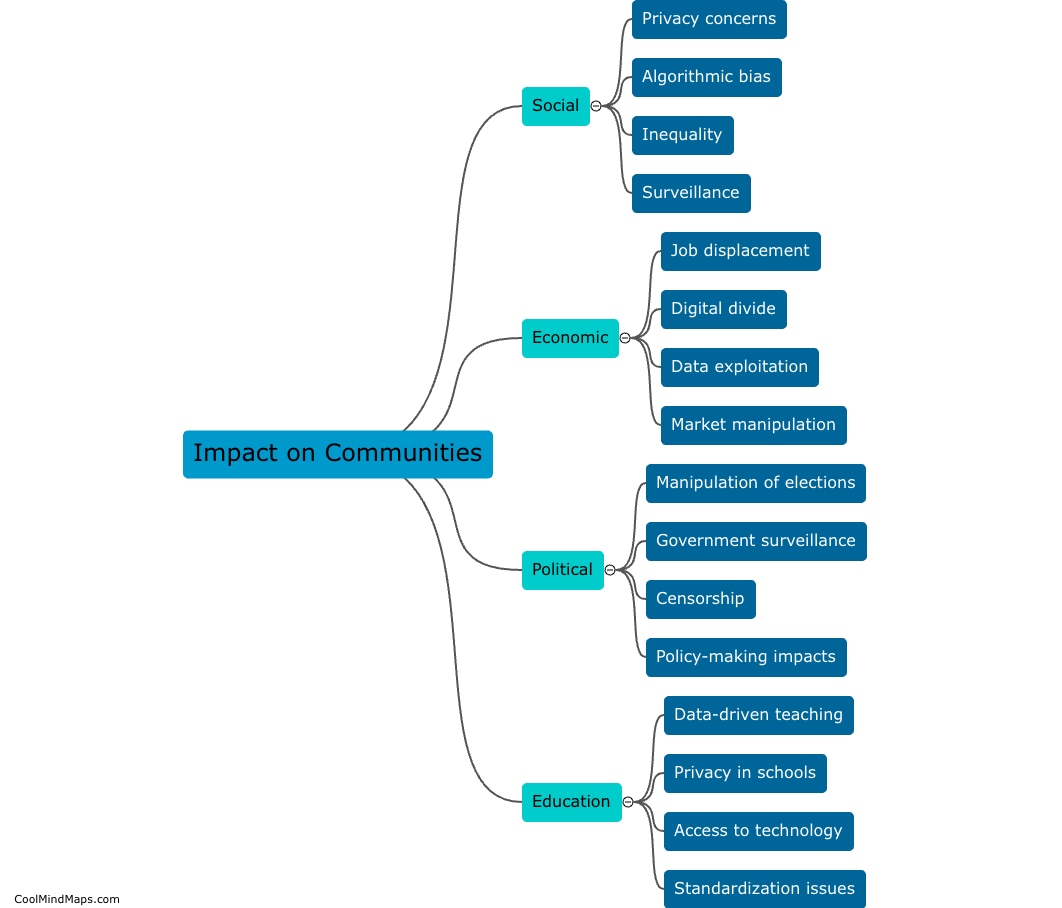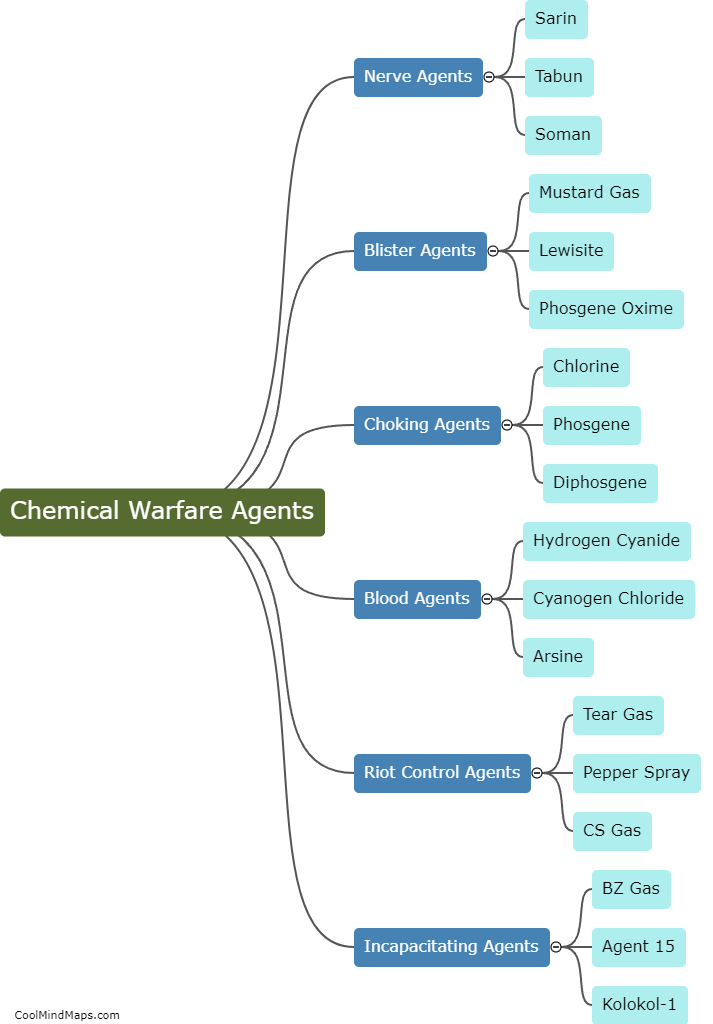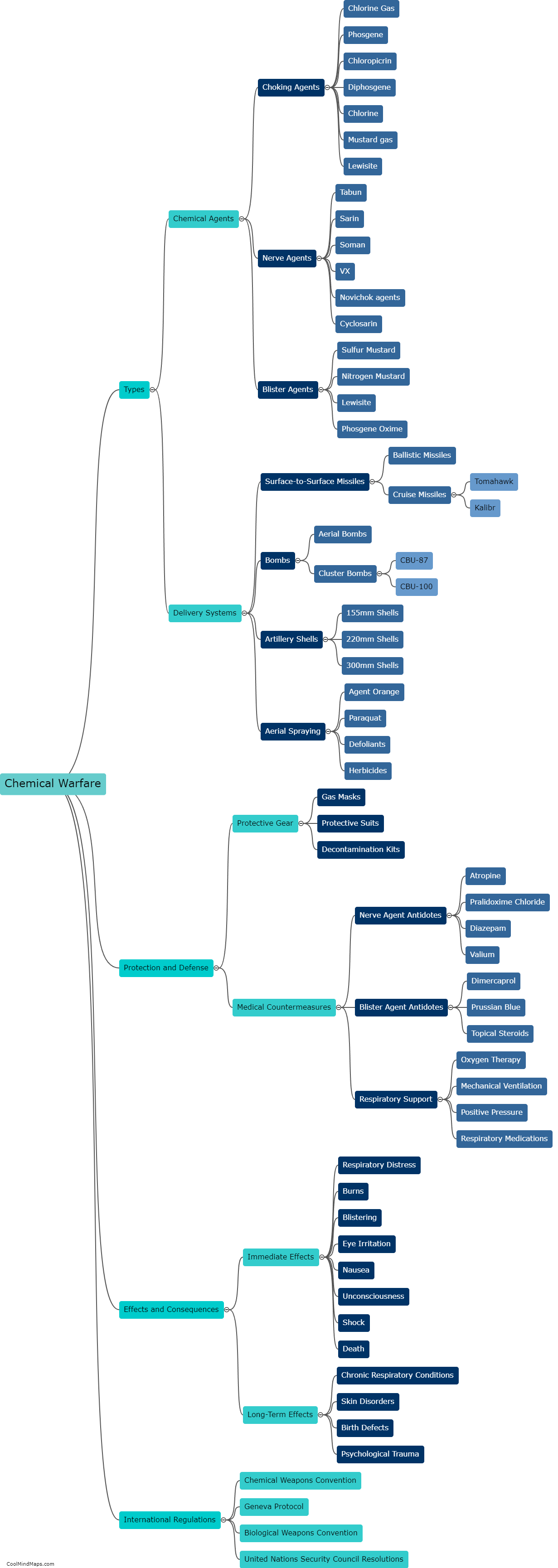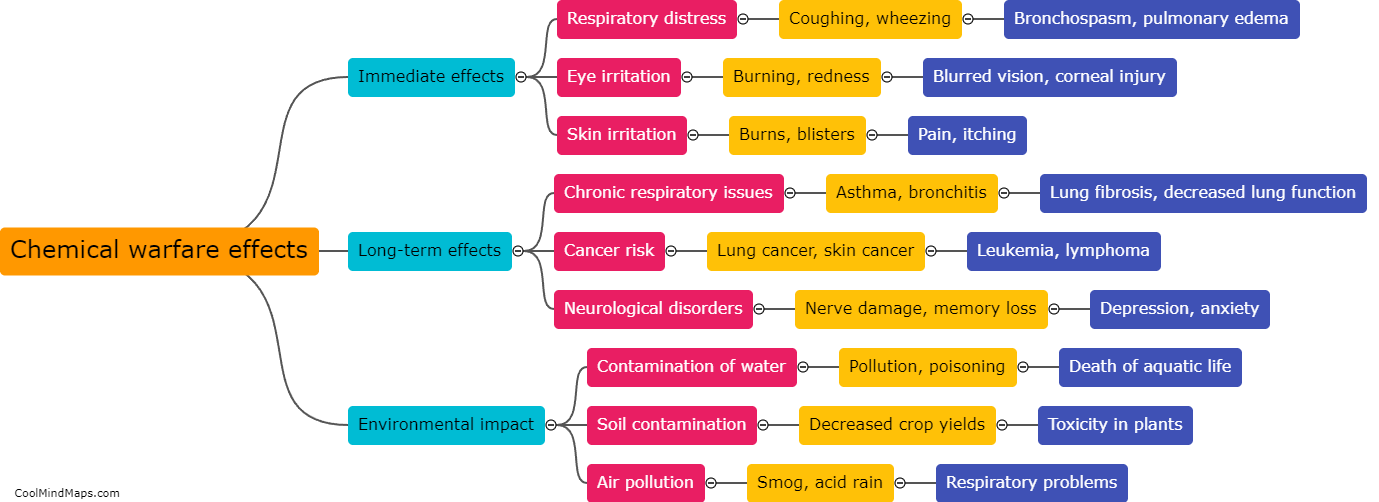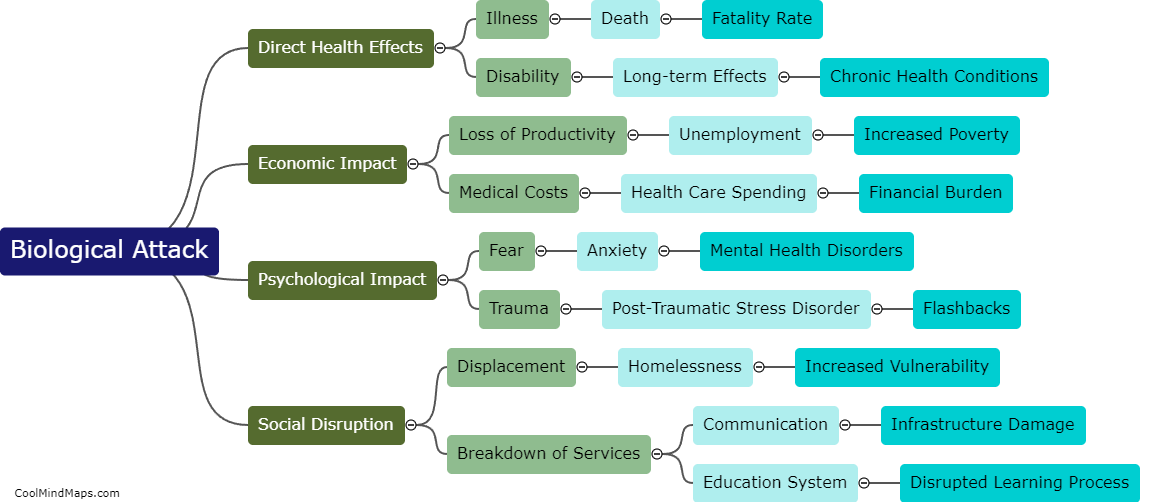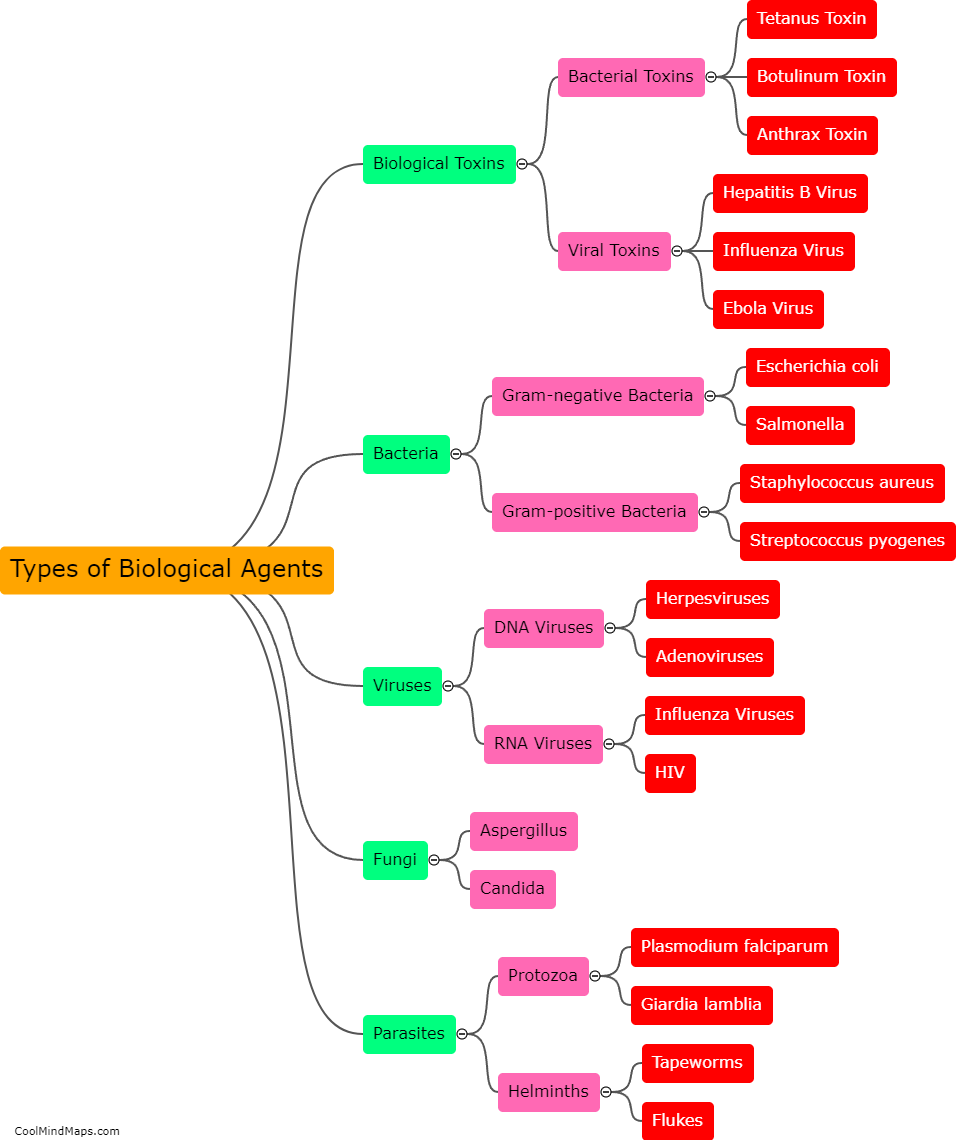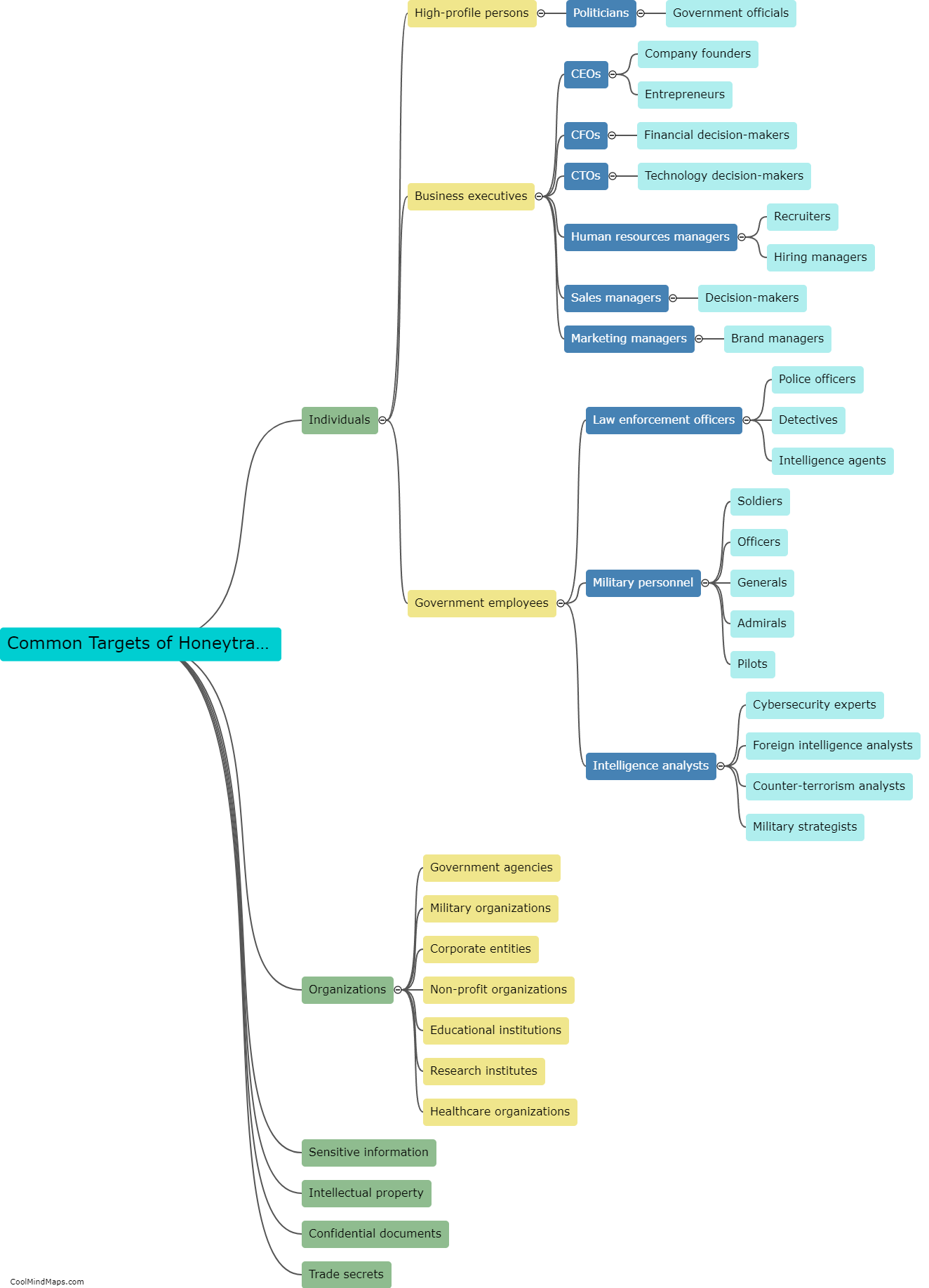How can we prevent and respond to biological warfare?
Preventing and responding to biological warfare requires a comprehensive strategy that encompasses both proactive measures and effective response tactics. Firstly, prevention involves international cooperation and the adherence to binding treaties such as the Biological Weapons Convention, which aims to eliminate the development and use of biological weapons. In addition, robust intelligence gathering and sharing mechanisms can help identify and mitigate potential threats. Strengthening national capacities for biosurveillance and early detection systems is crucial in identifying outbreaks and ensuring rapid response. Investing in research and development of countermeasures, vaccines, and therapeutics can enhance our readiness against emerging infectious diseases and potential bioweapons. Finally, effective response to biological attacks involves establishing emergency response plans, training healthcare professionals, and strengthening healthcare systems to withstand and manage large-scale outbreaks. International cooperation and collaboration between governments, scientific communities, and organizations are essential to combat biological warfare effectively and to protect global health security.
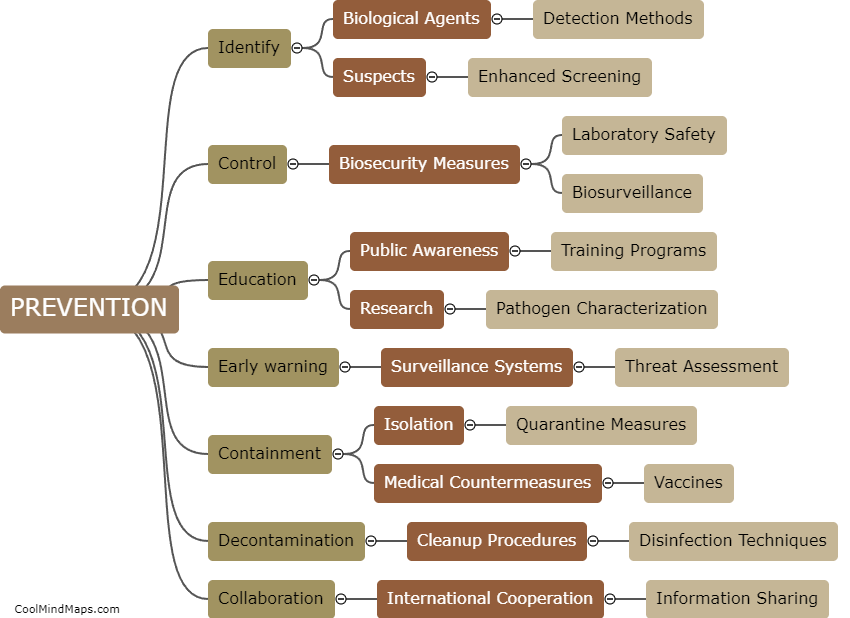
This mind map was published on 12 December 2023 and has been viewed 89 times.
